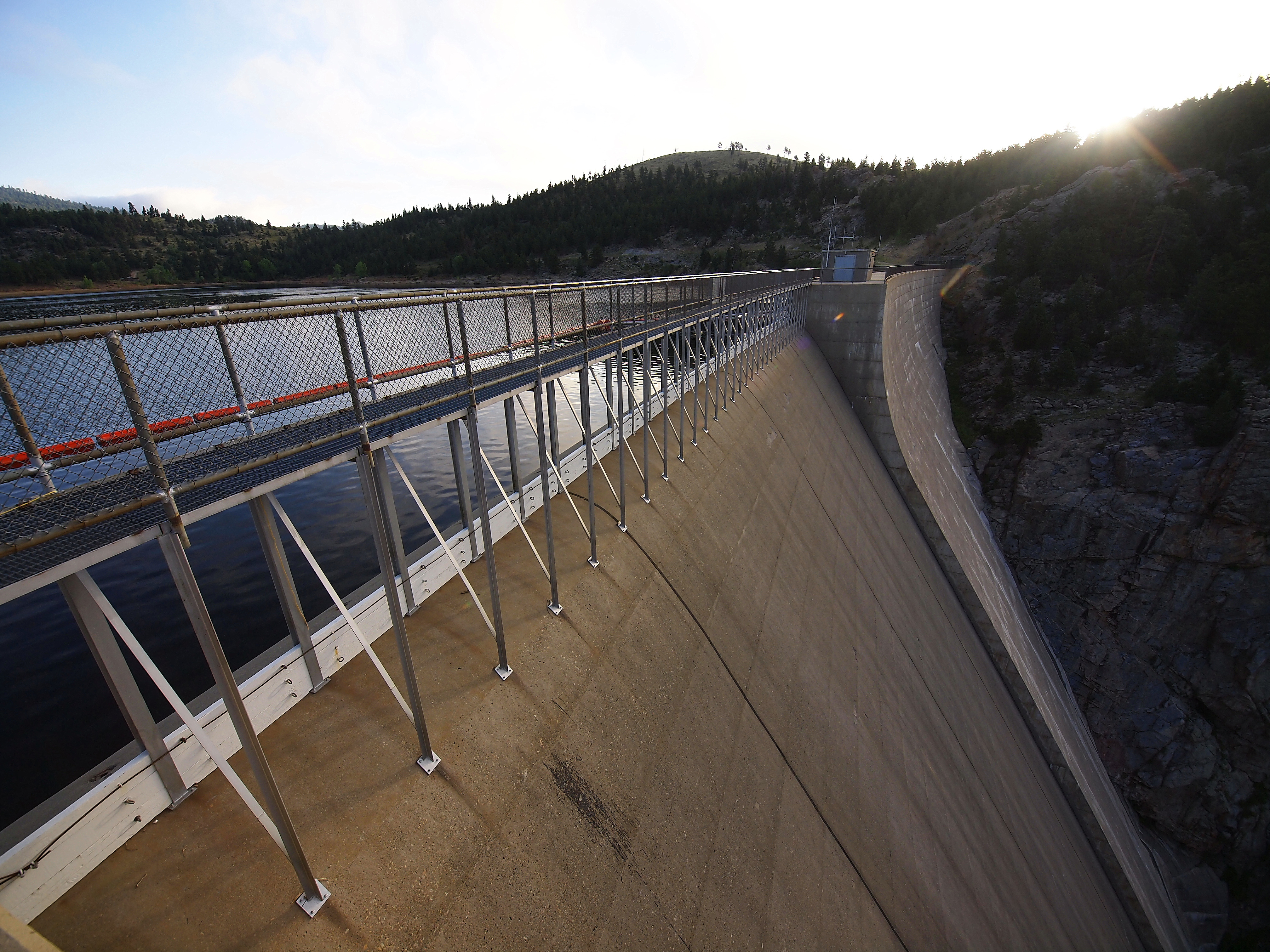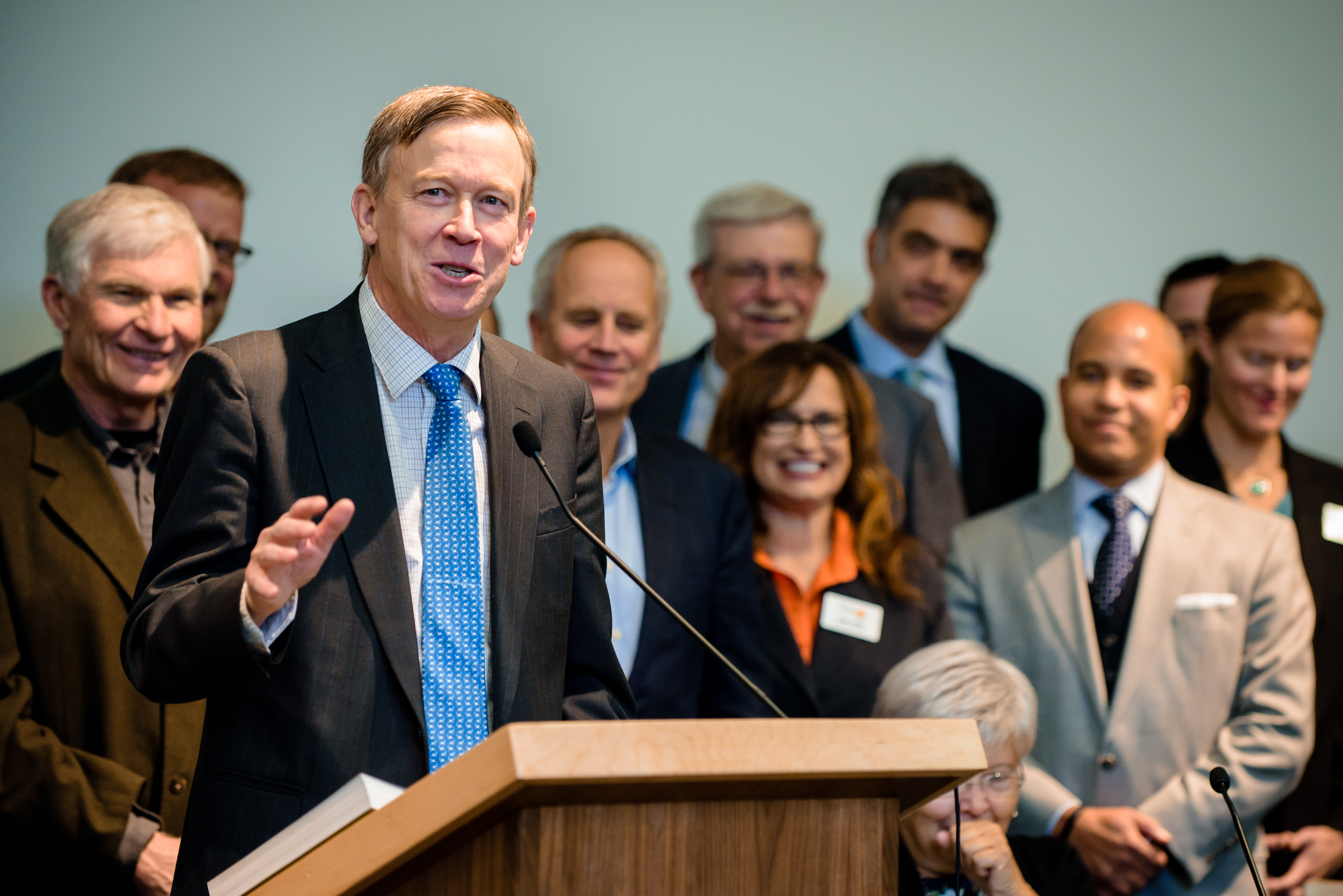
Water issues are the common thread through Hickenlooper’s years in office
After eight years as Colorado’s governor, John Hickenlooper has learned a thing or two about the complex issues that surround water in the West.
For one, he says with his trademark grin, “Water runs downhill.”
But all kidding aside, Hickenlooper pauses a moment to consider his answer.
“The most important thing I’ve learned about water in the last eight years is that we’re all connected,” the two-term governor said as part of remarks he recorded for the annual meeting in late October of the South Platte Forum, which brings together water managers who work across the South Platte River basin.
“And that interconnectedness is really going to be our biggest strength, because we are all in this together and I think we have the tools and the relationships to be able to solve the challenges of water in the future,” Hickenlooper said in an October interview, several weeks prior to the November election.
Colorado’s term limits barred Hickenlooper from running for a third term in office.
The state’s new governor, Jared Polis, will take the oath of office on Jan. 8, 2019.
Prior to Hickenlooper’s election as governor in 2011, he was Denver’s mayor, first elected to head Colorado’s biggest city in 2003. As mayor, Hickenlooper appointed all five members of the Denver Board of Water Commissioners, the board that oversees Denver Water, to staggered six-year terms. Three of Hickenlooper’s appointees continue to serve on the board, having been reappointed by current Denver Mayor Michael Hancock.
Water issues have been a common thread throughout Hickenlooper’s 15 years as either Denver’s mayor or Colorado’s governor.
“People make fun of the cliché, that in Colorado ‘whiskey’s for drinking and water’s for fighting.’ But the bottom line is that water is one of our most precious resources,” Hickenlooper said.
“It’s also one where I think we have the greatest opportunities to get ahead of future problems,” he said.
Following the drought of 2002, Denver Water kicked off a conservation campaign that has helped the 1.4 million people it serves in Denver and surrounding suburbs cut their water use by more than 20 percent compared to their use before the drought.
Hickenlooper also supported Denver Water’s long-running efforts to expand Gross Reservoir southwest of Boulder, a project that is in the final stages of the permitting process.
The larger reservoir, capable of holding an additional 77,000 acre-feet of water, will bolster Denver Water’s ability to react to year-to-year changes in snowpack levels, extreme weather swings and unbalanced water conditions across the state. The Colorado Department of Public Health and Environment, which studied the project and efforts Denver Water and others will make to improve the environment of streams and rivers upstream and downstream of the reservoir, also has concluded the project will have a “net environmental benefit” to water quality in Colorado.
Hickenlooper hailed the years of negotiation and collaboration that led to the ground-breaking, 2013 agreement, called the Colorado River Cooperative Agreement, between Denver Water and several West Slope entities that settled decades of legal challenges over water rights.
And his administration shepherded the first-ever Colorado Water Plan that outlines the avenues available to meet the water needs of the state’s growing population.
“The Colorado Water Plan is one of the most innovative water plans in the country,” Hickenlooper said, noting that more than 30,000 people commented on the plan prior to its completion in 2015.
“It lays out a blueprint of how we’re going to get from where we are now and, as the next few million people come, how we’re going to make sure that we have the water we need,” he said.
One of the strengths of the plan is that it uses an “all-of-the-above kind of approach,” Hickenlooper said.
Not only does the plan call for conservation and efficiency, but it also looks at “innovative new ways to get (water) storage,” he said, such as the Gross Reservoir Expansion Project.
The expansion project is a hallmark of Colorado’s ability to innovate, he said, because “instead of building a whole new reservoir, we find a way to raise that dam just a little bit — but dramatically increase the amount of storage.”
Meeting the future water needs of Colorado’s cities, agriculture and environment will be a tall order, one that Hickenlooper believes will rely on a bedrock of trust between the different stakeholders around the state.
“We have so many places, like the South Platte Forum, where people come together and discuss the real challenges around water. They’ve been doing it for years,” Hickenlooper said.
South Platte Forum formed in 1989 as an avenue for managers of the South Platte River Basin — home to not only the majority of Colorado’s population, but also much of its agriculture industry — to share information and ideas about managing the river.
It’s at such forums, Hickenlooper said, that “people get to know each other, and they build up a level of trust.”
“And once you trust people, you can make compromises, you can collaborate and — certainly around water — it’s fair to say that Colorado collaborates at the speed of trust. Once you have that trust, you can move pretty quickly,” he said.



